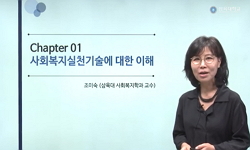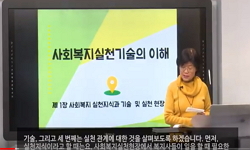본 연구는 저소득층 아동들의 학교준비도가 시간이 경과함에 따라서 인지 및 사회-정서 발달과 이후 읽기와 수학성취에 어떠한 영향을 미치는지 규명하고자 구조방정식 모형을 통해 검증하...
http://chineseinput.net/에서 pinyin(병음)방식으로 중국어를 변환할 수 있습니다.
변환된 중국어를 복사하여 사용하시면 됩니다.
- 中文 을 입력하시려면 zhongwen을 입력하시고 space를누르시면됩니다.
- 北京 을 입력하시려면 beijing을 입력하시고 space를 누르시면 됩니다.

저소득층 아동의 인지와 사회-정서 발달이 읽기와 수학능력에 미치는 종단적 효과 = Longitudinal Effects of Cognitive and Social-emotional Development on Reading and Math Achievement in the Children from Low-income Background
한글로보기부가정보
국문 초록 (Abstract)
본 연구는 저소득층 아동들의 학교준비도가 시간이 경과함에 따라서 인지 및 사회-정서 발달과 이후 읽기와 수학성취에 어떠한 영향을 미치는지 규명하고자 구조방정식 모형을 통해 검증하였다. 종단연구 모형을 분석하기 위하여 본 연구는 유치원부터 초등학교 5학년까지의 미국 아동들의 종단적 자료(ECLS)를 사용하였으며 유치원, 3학년, 5학년의 세 시점에 모두 참여하고 빈곤수준 이하 수준의 생활환경에 살고 있는 1,730명의 아동들을 대상으로 하였다. 분석 결과, 인지적 준비도와 행동적 준비도가 읽기와 수학성취도 각각에 미치는 영향이 달라지며 자아-개념과 사회적 기술을 매개한 간접적 영향도 다르게 나타났다. 또한 사회적 기술과 자아-개념도 읽기와 수학성취에 다르게 영향을 미치는 것으로 나타났다. 본 연구의 결과는 학교준비도(인지적 준비도와 정서적 준비도)의 중요성을 타당화하고 이러한 학교준비도가 저소득층 아동들의 인지와 사회-정서 발달에 어떤 영향을 미치는지를 규명함으로써 장기적으로 저소득층 아동의 학교 적응과 성취를 증진하도록 돕기 위하여 학교 입학 전 학교준비를 시키는 개입 등에 대한 정보를 제공하는데 그 교육적 시사점이 있다.
다국어 초록 (Multilingual Abstract)
Previous research has shown that some low-income groups are at a disadvantage in terms of academic success when compared to high- income groups. Previous research has posited several explanations as to why the achievement gap still remains. The purpos...
Previous research has shown that some low-income groups are at a disadvantage in terms of academic success when compared to high- income groups. Previous research has posited several explanations as to why the achievement gap still remains. The purpose of this study is to extend existing research on academic achievement by developing and testing a model of academic achievement (reading and math) in early elementary school students from low-income background. Using the Early Childhood Longitudinal Study-Kindergarten (ECLS-K), findings from this study revealed that the relationship between cognitive and social-emotional development operated differently for subject achievement. By identifying the cognitive and social-emotional development that may impede or facilitate student performance, educators could provide appropriate intervention for low-income students.
참고문헌 (Reference)
1 황혜원, "환경변인이 미국 저소득 아동의 학업성취와 문제행동에 미치는 영향" 한국아동권리학회 8 (8): 501-519, 2004
2 노성향, "저소득가정 아동의 정서지능 프로그램 참여와 아동의 정서지능 및 학업성취도와의 관계" 한국인간발달학회 12 (12): 43-56, 2005
3 Finn, J. D., "Withdrawing from school" 59 : 117-142, 1989
4 Ok, K. H., "Variations and outcomes in the afterschool care for children from low-income families" 22 (22): 91-111, 2001
5 Marsh, H. W., "Using the national longitudinal study of 1988 to evaluate theoretical models of self-concept : The self-description questionnaire" 86 (86): 439-456, 1994
6 Lemelin, J. -P., "The genetic environmental etiology of cognitive school readiness and later academic achievement in early childhood" 78 : 1855-1869, 2007
7 Yoo, N. H., "The effect of after-school program for low SES middle school students" 4 (4): 41-53, 2007
8 Arnold, D. H., "The early education of socioeconomically disadvantaged children" 54 : 517-545, 2003
9 홍세희, "Testing configural, metric, scalar, and latent mean invariance across genders in sociotropy and autonomy using a non-western sample" SAGE PUBLICATIONS INC 63 : 636-654, 200308
10 Elliott, S. N., "Social skills interventions for children" 17 (17): 287-313, 1993
1 황혜원, "환경변인이 미국 저소득 아동의 학업성취와 문제행동에 미치는 영향" 한국아동권리학회 8 (8): 501-519, 2004
2 노성향, "저소득가정 아동의 정서지능 프로그램 참여와 아동의 정서지능 및 학업성취도와의 관계" 한국인간발달학회 12 (12): 43-56, 2005
3 Finn, J. D., "Withdrawing from school" 59 : 117-142, 1989
4 Ok, K. H., "Variations and outcomes in the afterschool care for children from low-income families" 22 (22): 91-111, 2001
5 Marsh, H. W., "Using the national longitudinal study of 1988 to evaluate theoretical models of self-concept : The self-description questionnaire" 86 (86): 439-456, 1994
6 Lemelin, J. -P., "The genetic environmental etiology of cognitive school readiness and later academic achievement in early childhood" 78 : 1855-1869, 2007
7 Yoo, N. H., "The effect of after-school program for low SES middle school students" 4 (4): 41-53, 2007
8 Arnold, D. H., "The early education of socioeconomically disadvantaged children" 54 : 517-545, 2003
9 홍세희, "Testing configural, metric, scalar, and latent mean invariance across genders in sociotropy and autonomy using a non-western sample" SAGE PUBLICATIONS INC 63 : 636-654, 200308
10 Elliott, S. N., "Social skills interventions for children" 17 (17): 287-313, 1993
11 Shavelson, R. J., "Self-concept : The interplay of theory and methods" 74 (74): 3-17, 1982
12 Alexander, K. L., "Schools, achievement, and inequality : A seasonal perspective" 23 (23): 171-191, 2001
13 Blair, C., "School readiness : Integrating cognition and emotion in a neurobiological conceptualization of children's functioning at school entry" 57 : 111-127, 2002
14 Finn, J., "School engagement and students at risk" US Department of Education, National Center for Educational Statistics. 1993
15 Mo, H., "Relative potency of intelligence, emotional intelligence, and Big 5 personality factors in academic achievement between low-income students and middle & high income students" Sookmyung Women's University 2011
16 Chen, J. J-L., "Relation of academic support from parents, teachers, and peers to Hong Kong adolescents' academic achievement: The mediating role of academic engagement" 131 (131): 77-127, 2005
17 Chen, X., "Relation between academic achievement and social adjustment : Evidence from Chinese children" 33 (33): 518-525, 1997
18 Barton-Arwood, S. M., "Reading instruction for elementary-age students with emotional and behavioral disorders : Academic and behavioral outcomes" 72 (72): 7-27, 2005
19 McWayne, C. M., "Preschool competency in context : An investigation of the unique contribution of child competencies to early academic success" 40 (40): 633-645, 2004
20 Forget-Dubois, N., "Predicting school achievement with the EDI : A longitudinal populationbased study" 18 : 405-426, 2007
21 Ladd, G. W., "Predicting preschoolers' peer status from their playground behaviors" 59 : 986-992, 1988
22 La Paro, K. M., "Predicting children's competence in the early school years : A meta-analytic review" 70 (70): 443-484, 2001
23 Marsh, H. W., "Multilevel causal ordering of academic self-concept and achievement : Influence of language of instruction for hong kong students" 39 (39): 727-763, 2002
24 Hess, D., "Maternal variables as predictors of children's school readiness and later achievement in vocabulary and mathematics in sixth grade" 55 : 1902-1912, 1984
25 Welsh, M., "Linkages between children's social and academic competence : A longitudinal analysis" 39 (39): 463-482, 2001
26 Blair, C., "How similar are fluid cognition and general intelligence? A developmental neuroscience perspective on fluid cognition as an aspect of human cognitive ability" 29 : 109-160, 2006
27 Hinshaw, S. P., "Externalizing behavior problems and academic underachievement in childhood and adolescence : Causal relationships and underlying mechanisms" 111 (111): 127-155, 1992
28 Skinner, C. H., "Enhancing academic engagement : Providing opportunities for responding and influencing students to choose to respond" 42 (42): 389-403, 2005
29 Konold, T. R., "Empirically-derived, person-oriented patterns of school readiness in typically-developing children : Description and prediction to firstgrade achievement" 9 : 174-187, 2005
30 Forget-Dubois, N., "Early child language mediates the relation between home environment and school readiness" 80 (80): 736-749, 2009
31 Burchinal, M. R., "Development of academic skills from preschool through second grade : Family and classroom predictors of developmental trajectories" 40 (40): 415-436, 2002
32 Hughes, J. N., "Classroom engagement mediates the effect of teacherstudent support on elementary students' peer acceptance : A prospective analysis" 43 : 465-480, 2006
33 Malecki, C. K., "Children's social behaviors as predictors of academic achievement : A longitudinal analysis" 17 (17): 1-23, 2002
34 Ladd, G. W., "Children's initial sentiments about kindergarten: Is school liking an antecedent of early childhood classroom participation and achievement?" 46 : 255-279, 2000
35 Lee, J. Y., "Children and their rights" Changjisa 2007
36 Ryan, R. M, "Childhood poverty: Implications for school readiness and early childhood education, In Handbook of research on the education of children (2nd ed)" Erlbaum Associates 323-346, 2006
37 Campbell, S. B., "Child characteristics and family process that predict behavioral readiness for school, In Early disparities in school readiness: How families contribute to transitions into school" Lawrence Erlbaum 225-258, 2008
38 Marsh, H. W., "Causal effects of academic self-concept on academic achievement : Structural equation models of longitudinal data" 89 (89): 41-54, 1997
39 Bierman, K. L., "Behavioral and cognitive readiness for school : Cross-domain associations for children attending head start" 18 (18): 305-323, 2008
40 Newman, R. S., "Achievement and self-evaluations in mathematics" 76 : 857-873, 1984
41 Marsh, H. W., "Academic self-concept: Theory, measurement, and research, In Psychological Perspectives on the Self, 4" Lawrence Erlbaum Associates, Inc 59-98, 1993
42 Guay, F., "Academic self-concept and academic achievement : Developmental perspectives on their causal ordering" 95 (95): 124-136, 2003
43 Stipek, D., "Academic achievement and social behaviors associated with age of entry into kindergarten" 99 (99): 52-64, 2001
44 Nowicki, E. A., "A meta-analysis of the social competence of children with learning disabilities compared to classmates of low and average to high achievement" 26 : 171-188, 2003
45 Schumacker, R. E., "A beginner's guide to structural equation modeling, 2nd ed" Lawrence Erlbaum Associates, Inc 2004
동일학술지(권/호) 다른 논문
-
초등학생의 맥락적 지지가 진로성숙도에 미치는 영향 (자아존중감의 매개효과를 중심으로)
- 한국아동권리학회
- 유수복
- 2012
- KCI등재
-
영유아기 권리에 대한 유엔의 권고 분석 - 유엔아동권리위원회의 일반논평을 중심으로-
- 한국아동권리학회
- 황옥경
- 2012
- KCI등재
-
저소득층 어머니 양육행동을 통한 어머니 특성변인, 유아 특성변인과 유아의 사회정서행동간의 관련성 분석
- 한국아동권리학회
- 심숙영
- 2012
- KCI등재
-
그림책을 활용한 통합적 활동경험이 유아의 언어능력 및 조망수용능력에 미치는 영향
- 한국아동권리학회
- 강선정
- 2012
- KCI등재
분석정보
인용정보 인용지수 설명보기
학술지 이력
| 연월일 | 이력구분 | 이력상세 | 등재구분 |
|---|---|---|---|
| 2022 | 평가예정 | 재인증평가 신청대상 (재인증) | |
| 2019-01-01 | 평가 | 등재학술지 유지 (계속평가) |  |
| 2016-01-01 | 평가 | 등재학술지 선정 (계속평가) |  |
| 2015-12-01 | 평가 | 등재후보로 하락 (기타) |  |
| 2011-01-01 | 평가 | 등재학술지 유지 (등재유지) |  |
| 2009-01-01 | 평가 | 등재학술지 유지 (등재유지) |  |
| 2008-02-18 | 학술지명변경 | 한글명 : J Children's Rights -> 아동과 권리외국어명 : Journal of Korean Council for Children's Rights -> Journal of Korean Council for Children & Rights |  |
| 2007-01-01 | 평가 | 등재학술지 유지 (등재유지) |  |
| 2005-01-01 | 평가 | 등재학술지 유지 (등재유지) |  |
| 2002-07-01 | 평가 | 등재학술지 선정 (등재후보2차) |  |
| 2000-01-01 | 평가 | 등재후보학술지 선정 (신규평가) |  |
학술지 인용정보
| 기준연도 | WOS-KCI 통합IF(2년) | KCIF(2년) | KCIF(3년) |
|---|---|---|---|
| 2016 | 1.02 | 1.02 | 1.24 |
| KCIF(4년) | KCIF(5년) | 중심성지수(3년) | 즉시성지수 |
| 1.3 | 1.26 | 1.569 | 0.14 |




 KISS
KISS






